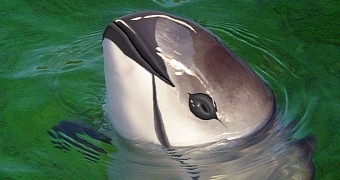Wildlife researchers warn that, under a business-as-usual scenario, the world stands to lose yet another species before the end of this decade.
Thus, they say that, all things considered, chances are that vaquitas, described as porpoises currently populating the waters off the coast of Mexico, will go extinct in about 4 years or so.
This species of marine mammals was listed as a critically endangered one by the International Union for Conservation of Nature for quite a while now.
In fact, researchers and conservationists estimate that just 100 such animals are left in the wild. Besides, the overall headcount for the species is believed to have dropped by 18.5% over the last year.
Fishing nets are the chief threat to these animals' long-term survival, Live Science informs. Thus, it often happens that vaquitas get caught in nets local fishermen lay out to catch fish and end up drowning.
Admittedly, about 20% of these marine mammals’ natural habitat off the coast of Mexico now benefits from legal protection. Still, researchers say that illegal fishing activities are still carried out in the region.
What this means is that, unless authorities in Mexico step up efforts to protect these marine creatures and their natural habitat, chances are that it will not be long until the species goes extinct.
As illustrated by the photos and images below, vaquitas aren't all that big. In fact, they measure just 4 to 5 (1.2 to 1.5 meters) in length. What makes them stand out is the fact that they always look as if they were wearing mascara and a dark lipstick.

 14 DAY TRIAL //
14 DAY TRIAL // 



